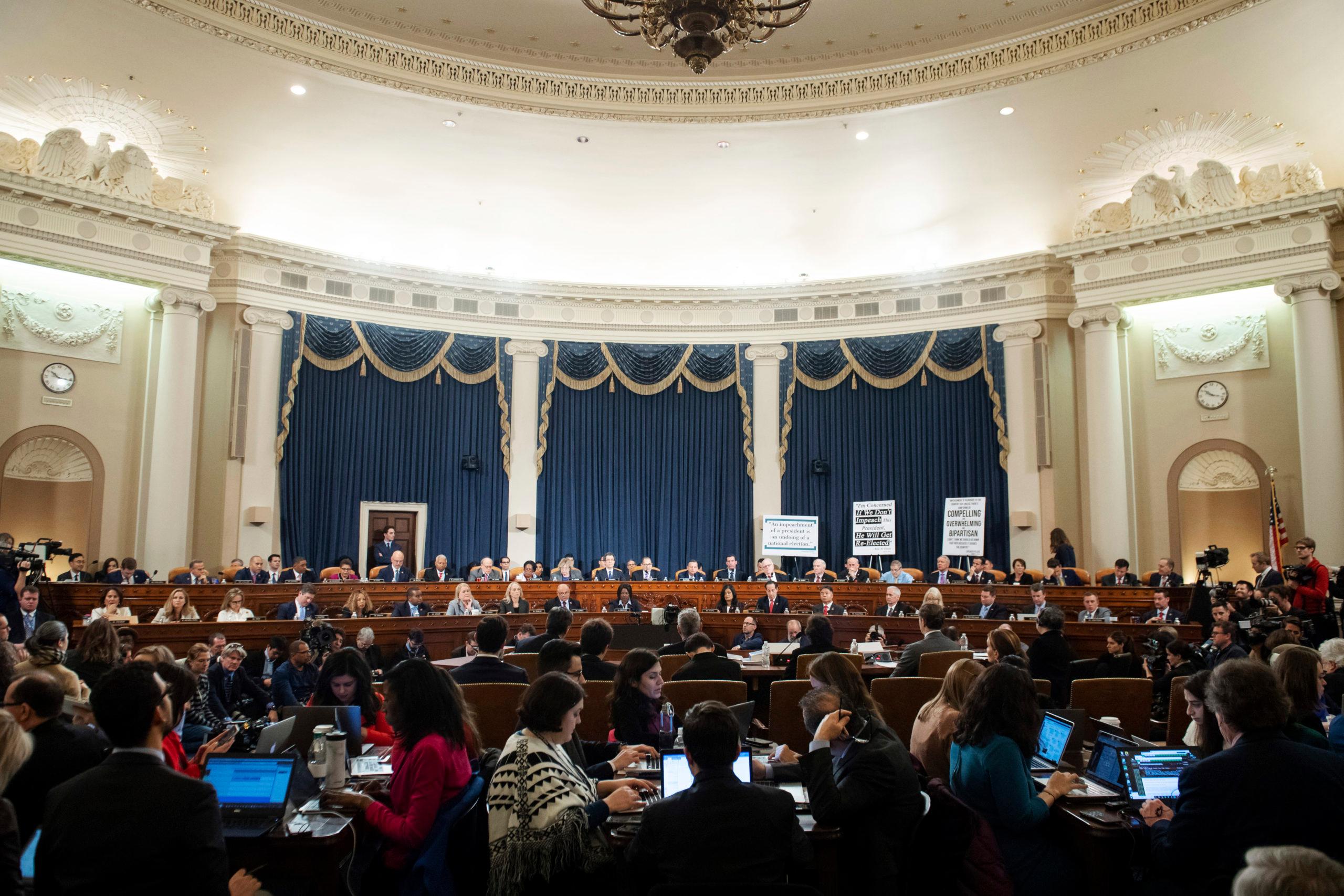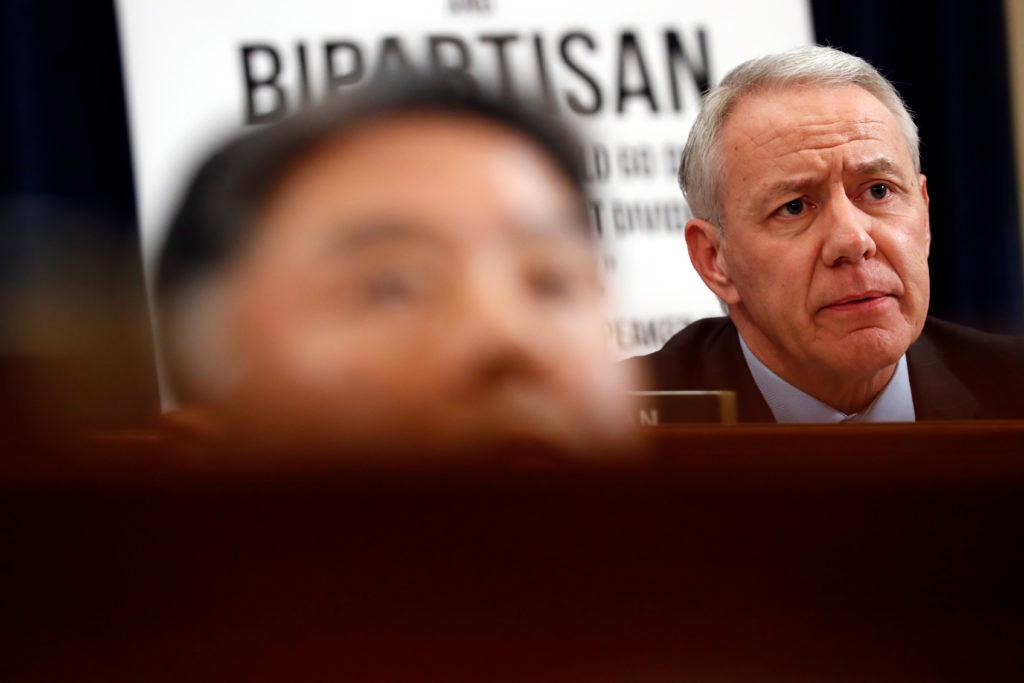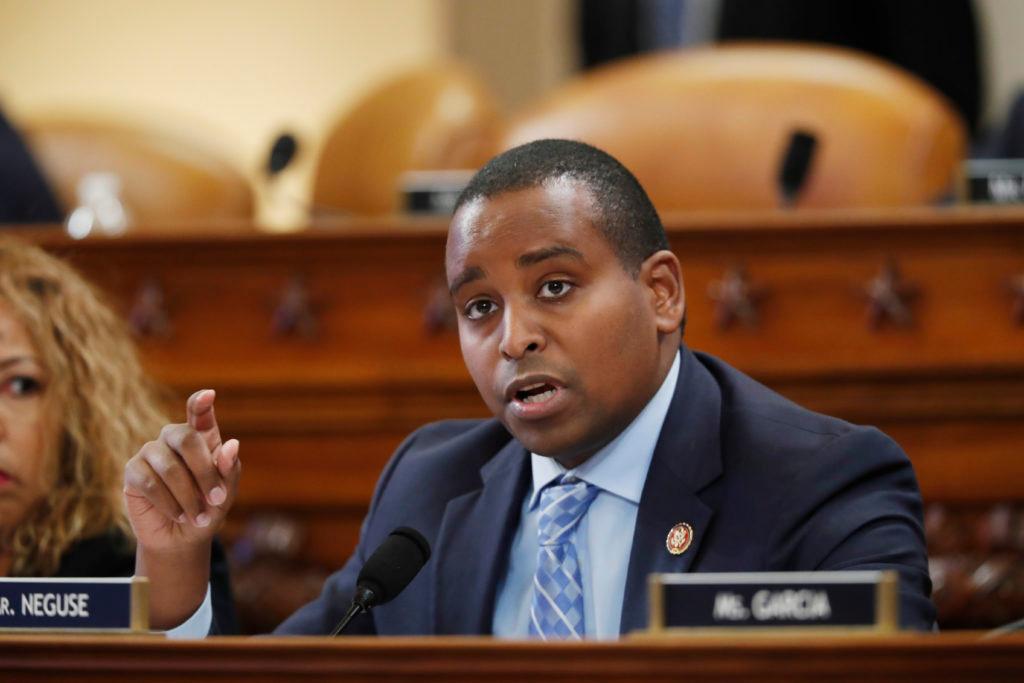
Colorado Reps. Ken Buck and Joe Neguse had a front row seat Wednesday as Congress embarked on its next act in the impeachment saga. The U.S. House Judiciary Committee — a committee where both men sit — spent a long day questioning four legal scholars on what constitutes an impeachable offense.
Three of the academics said the actions taken by President Donald Trump surrounding efforts to pressure Ukraine’s president to investigate a political rival did rise to the level of an impeachable offense as envisioned by the nation’s founders.
“If what we’re talking about is not impeachable, then nothing is impeachable,” said Prof. Michael Gerhardt of the University Of North Carolina School Of Law. "This is precisely the misconduct that the framers created a Constitution including impeachment to protect against."
But one panelist disagreed. Professor Jonathan Turley of the George Washington University School of Law was concerned over what he views as a lowering of impeachment standards.
“If the House proceeds solely on the Ukrainian allegations, this impeachment would stand out among modern impeachments as the shortest proceeding, with the thinnest evidentiary record, and the narrowest grounds ever used to impeach a president,” he said.
Turley was chosen for the panel by House Republicans, the other three witnesses were selected by Democrats.
Buck, a Republican who represents the 4th district, also shared Turley’s concerns. He focused his five minutes of questioning on whether abuse of power for political or personal gain is an impeachable offense. He listed questionable abuses of power from presidents going as far back as President Lincoln.

“You can’t say abuse of power for political gain. That’s ridiculous,” Buck said later. “Because what you consider abuse, I may consider the fair use of power for political gain.”
The former prosecutor said the Constitution is clear about what is an impeachable.
“It’s treason. We know what treason is; there’s case law on treason. It’s bribery. We know what bribery is. There’s case law on bribery. High crime is a felony and a misdemeanor is a misdemeanor,” Buck explained.
Neguse, a Democrat who represents the 2nd district, agrees that Article 1 and Article 2 of the constitution clearly lay out what is or is not an impeachable offense. But he differs from Buck on what constitutes high crimes and misdemeanors.
“And as we heard today, there is ample evidence applied against those standards — both from an abuse-of-power perspective and this president’s abuse of power, as well as constitutional bribery,” Neguse said.
For Neguse, one of the strongest arguments made in the hearing was the idea that “various constitutional standards and constitutional norms seem to be evaporating and are eroding under this presidency in light of this president’s conduct.”
Neguse said it was an open question if the day’s testimony will change minds, but he found the discussion “compelling.”
He used his five minutes to ask about Trump’s intimidation of witnesses and his praise of those who did not cooperate with Congress’s investigation. Neguse asked whether this was the type of behavior that concerned the founding fathers as they considered the limits of presidential power.

Gerhardt answered yes.
Buck and Neguse are the first Colorado lawmakers to have a direct role in the impeachment proceedings, but they’re not the only ones following it closely. Other members of the House delegation have sat in on portions of the public hearings.
Republican Rep. Doug Lamborn of the 5th Congressional District made it to the Judiciary Committee for opening statements.
“What I have heard so far has not moved the dial for me,” said Lamborn, who opposes the impeachment effort. “This boils down to a policy difference. Should the president have brought up corruption issues with Zelinsky in Ukraine that involved prominent members of the previous administration? ... And I think wherever people come down on that — yeah, maybe they say it was appropriate, maybe they say it’s no big deal — I don’t think it’s impeachable.”
In response to what he would consider an impeachable offense, Lamborn said it must be “something equivalent to treason and bribery. Something serious. Something criminal, is how I look at it. Not a policy difference."
After the hearing wrapped up in the early evening, Rep. Diana DeGette noted in a statement that the Democratic-chosen experts found three impeachable offenses in the president’s actions: bribery, abuse of power and obstruction of justice.
“They also made clear that when a president betrays the trust that our nation placed in them, Congress has a duty to act,” DeGette said.









